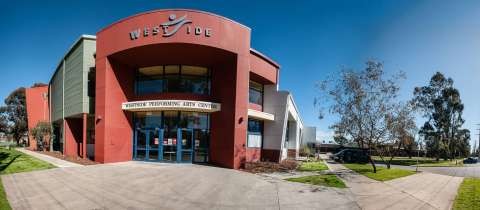The Marshall Liberal Government is leading a push for changes to be made to the national ‘Fitness to Drive’ guidelines which would allow many stroke survivors who are fit to drive to return to driving sooner.
Minister for Health and Wellbeing Stephen Wade said the changes would allow General Practitioners to certify that stroke survivors who are eligible to drive at the four-week mark can do so, rather than unnecessarily wait months for specialist review.
“We want South Australians who have experienced a minor stroke to be able to return to their normal lives as soon as possible,” Minister Wade said.
“Under the current legislation, stroke patients can only get back behind the wheel if they receive specialist approval a minimum of a month after they’ve experienced the stroke, but it can take more than six months to see a neurologist or other certified specialist.
“This means that stroke survivors who have recovered from a minor stroke often face unnecessarily long ban on driving, which can be a source of stress, inconvenience, expense and social isolation.
Under the proposal, when a patient is discharged from a hospital with a minor stroke that would not affect their driving, their GP could assess whether any impairments have developed at the four-week mark.
If the GP is satisfied the patient is fit to drive, specialist approval would not be required.
“We believe this would make the process a lot easier, which is why we are pushing for this change to be considered as part of a pending review of the National Transport Commission’s guidelines.”
Head of the Royal Adelaide Hospital Stroke Unit, Associate Professor Timothy Kleinig said almost 5,000 strokes are experienced by South Australians every year, while around one-in-three stroke survivors are of working age (under 65).
“Patients who suffer minor strokes often have symptoms that resolve quickly, but under the current requirements they still have to wait months to see a specialist to be certified fit to drive, even if symptoms were fleeting and non-disabling,” A/Prof Kleinig said.
“In some cases, stroke patients living in rural areas don’t have access to a local specialist meaning they also have to travel for their appointments.
“This proposal would not only have a huge impact on stroke survivors and their families, but it would also help to alleviate some of the strain on our clinical system and reduce specialist waiting times.”
Stroke Foundation Chief Executive Officer Sharon McGowan said for many patients, returning to driving was a key part of recovery.
“Getting back behind the wheel is not only important for traveling to work, completing everyday tasks like grocery shopping and going to doctors’ appointments, it also provides a source of independence and freedom,” Ms McGowan said.
“By ensuring those who are fit to drive are able to do so in a safe and timely manner is an important step on the journey to living well after stroke.”
This proposal would not impact patients who have had significant cognitive or physical deficits following stroke, who will still require thorough review to ensure road safety.






